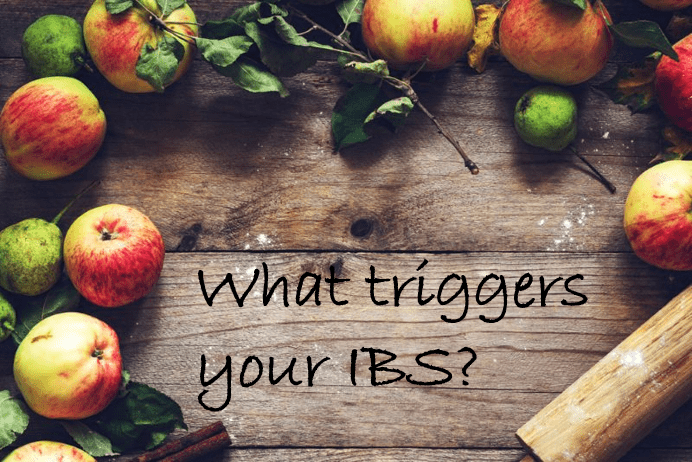Irritable Bowel Syndrome (IBS) is a common digestive disorder affecting around 15-20% of people in the UK. While the exact cause is often complex and the subject of ongoing research, it’s well-established that certain triggers can exacerbate symptoms and lead to uncomfortable flare-ups. So, what are the triggers for IBS? By recognizing what triggers IBS symptoms, you can begin to take back control of your IBS and improve your quality of life.
Common IBS triggers
- Food and drinks: Some common foods and drinks can trigger IBS symptoms in different people. The usual culprits include:
- Gluten or wheat: This can be a common trigger. It’s important to exclude the possibility of Coeliac disease (an allergy to gluten), so ask your GP for a test
- Onions and garlic: These are in so many foods and can often trigger symptoms
- Dairy products: Can often be the cause of bloating, gas and diarrhoea
- Caffeinated drinks: Coffee, tea, and fizzy drinks can stimulate the gut and worsen diarrhoea
- Alcohol: Like to caffeine, alcohol can irritate the gut and contribute to both diarrhoea and constipation
- Stress and Anxiety: Stress and anxiety can often stimulate gut issues such as pain, diarrhoea or constipation
- Hormonal fluctuations: Women often report worse symptoms around menstruation
- Medications: Some medications can disrupt the gut microbiome and trigger IBS symptoms
Identifying your triggers
Keeping a food and symptom diary is an effective way to identify your specific triggers. Note down everything you eat and drink, along with any IBS symptoms you experience. Analyzing the patterns over time can help you recognize potential triggers. Of course, the most effective way to identify your food triggers would be using the well-established low FODMAP diet approach. Many find this difficult to manage alone and for best results it’s always advisable to have the expert advice and support of an IBS Dietitian trained in FODMAPs.
Managing your triggers
Once you’ve identified your triggers, you can take steps to manage them:
- Dietary modifications: Avoid or limit trigger foods and drinks. Explore low FODMAP diet, this has been shown to improve symptoms in over 75% of those with IBS
- Stress management: Practice relaxation techniques like deep breathing, yoga or meditation to manage stress and anxiety. Try the Headspace app for help with daily relaxation
- Regular exercise: Aim for at least a walk most days of the week to improve gut health and manage stress. But, do something that you enjoy and build it into your everyday life
- Probiotics: These supplements contain live bacteria similar to those found in a healthy gut, potentially aiding in managing IBS symptoms. However, it’s wise to check with your GP before starting any supplements
Checklist
- IBS management is unique for each individual. What triggers one person might not affect another
- Check with your GP if your symptoms are new or if you have blood in your stools
- Consider your IBS treatment options and find out more about FODMAPs
- Be patient and consistent. Managing triggers and improving IBS symptoms takes time and effort. Don’t get discouraged, and keep track of your progress
Can a dietitian help with IBS relief?
If you need expert advice and support, an IBS Dietitian trained in FODMAPs can use knowledge and experience to help you with the low FODMAP diet. It can be difficult to do alone, but with support, sufferers can identify their triggers and improve management of IBS symptoms. A FODMAP dietitian will provide practical ways to help you fit the low FODMAP diet into your lifestyle. Ensuring that you still get all the nutrients you need from your food. I can be your ‘IBS Dietitian near me’, although I’m based in Cardiff, I practise across the UK via virtual sessions. I offer a free initial telephone consultation, so why not arrange a call today.
Conclusion
By finding out what are the triggers for IBS symptoms, you can start tackling it from all fronts. Take a good look at your diet, relaxation time and exercise regime. Make some changes today, there’s lots of help out there. If you suspect you have IBS, consulting with your GP or Dietitian is the first step towards a more comfortable and manageable life with IBS. The low FODMAP diet can be a powerful tool, but managing digestive issues requires expert help and some effort on your part. Remember, for best results consult an IBS Dietitian for personalized guidance and support on your low FODMAP journey.
Disclaimer: This blog is for information purposes only and does not substitute for professional medical advice. Please consult your healthcare provider for personalised diagnosis and treatment of IBS.




